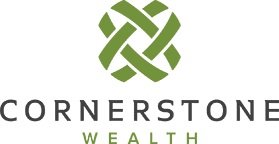What Do Tariffs Mean for Your Financial Plan?
Tariffs and Your Financial Plan
In today’s global economy, changes in trade policies—especially tariff implementations—have far-reaching consequences. These ripple effects don’t just hit government budgets or big corporations; they affect investors, business owners, retirees, and everyday shoppers alike. So, what are tariffs, and how exactly can they shape your financial future? This guide breaks it down and offers tips to adjust your financial plan and prepare for economic changes.
What Are Tariffs?
Tariffs are taxes or duties levied on imported goods by governments. Historically, they’ve been used to protect domestic industries, punish foreign competitors, or pressure trading partners into economic agreements. When a tariff is applied, the cost of importing goods rises, often causing price increases for consumers and reduced profitability for businesses that depend on imported materials.
How Do Tariffs Affect the Economy?
Understanding the impact of tariffs on the economy is critical to protecting your financial well-being. Here’s how tariffs ripple through markets:
Higher Prices for Consumers
Goods subject to tariffs cost more to import, which means you, the consumer, often pay higher prices for essentials like electronics, vehicles, or groceries.Volatility in Investment Markets
Industries relying on imports—such as manufacturing or technology—may see reduced profitability when tariffs raise their costs. This can lead to instability in stocks associated with these businesses.Strained Trade Relationships
When countries retaliate with tariffs, trading partners may limit global trade, disrupt supply chains, and limit access to international goods.Currency Exchange Fluctuations
Tariff policies can affect global currency markets, meaning your international investments might see fluctuating valuations.
Tariffs and Your Financial Plan
Wondering how tariffs affect your financial goals? Here are five key areas that tariffs can directly influence:
1. The Effect of Tariffs on Your Investment Portfolio
Tariffs often hit industries like technology, agriculture, and manufacturing particularly hard. Companies dependent on imported raw materials or foreign parts may suffer from lower profit margins, leading to falling stock prices. Mitigate this risk by diversifying your investment portfolio across industries, sectors, and global markets. A balanced portfolio can better absorb volatile market swings. Learn more about a balanced portfolio.
2. Inflation’s Impact on Your Purchasing Power
Higher costs of imported goods can lead to inflation. Rising prices erode your purchasing power, meaning your money buys less than it used to. Budget adjustments and saving strategies can help you manage cost-of-living increases caused by tariffs.
3. The Long-Term Effect on Retirement Savings
Inflation spurred by tariffs can have a compounding effect on retirement savings, particularly if these savings are tied to fixed income or low-yield assets. Keep your retirement strategy inflation-proof by incorporating things like equities, inflation-protected securities, or real estate into your portfolio. (It is best to speak to a qualified representative regarding your unique circumstances and what would work best for your long-term goals.)
4. The Impact of Tariffs on Business Owners and Supply Chains
For business owners relying on global supply chains, tariffs can increase production costs, compress profit margins, and create operational delays. Review your supply chain, explore local suppliers, and negotiate with vendors to minimize tariff-related risks.
5. Opportunities Created by Tariff Policies
Although tariffs raise costs, they can also create new investment opportunities for local industries as foreign competition is reduced. Look for growth in domestic-facing companies that may benefit from increased demand for their products.
Preparing Your Financial Plan for Tariffs
While tariffs can create uncertainty, you can safeguard your financial plan with these strategies:
Stay Informed About Trade Policies
Monitoring changes in tariffs and trade agreements is the first step to adapting your financial plan. Stay updated on how these trends may affect your investments or household budget.Diversify Your Assets Across Sectors and Regions
Speak with your financial advisor about balancing your portfolio to reduce sector-specific risks. Geographic diversification can also buffer against regional economic disruptions caused by tariffs.Adjust Your Budget for Inflation
Start tracking your spending and adjust your budget as prices rise. Over time, these small adjustments can prevent day-to-day costs from spiraling out of control. Learn more about adjusting your budget for tariffs.Invest in Inflation-Resistant Assets
Assets like equities, commodities, or Treasury Inflation-Protected Securities (TIPS) can help combat inflation's long-term effects on your wealth.Seek Professional Guidance
If you’re a business owner or heavily invested in tariff-sensitive industries, consulting a financial or legal expert can help you explore alternatives to mitigate cost increases.
Actionable Tips for Navigating Financial Uncertainty
Dealing with the economic side effects of tariffs may seem overwhelming, but small, proactive efforts can go a long way in securing your financial health. Whether it’s protecting your retirement savings or adjusting spending habits, taking action now can help you weather economic uncertainty.
Final Thoughts: Tariffs and Your Money
While tariffs create challenges such as increased costs and market volatility, they also highlight the value of proactive financial planning. Diversified investments and inflation-resistant strategies act as safeguards in today’s ever-changing economic climate.
If you’re unsure how to navigate trade tensions, reach out to Cornerstone Wealth. Our team can help you build a tailored financial plan that aligns with your goals—even in uncertain times.
This is for informational purposes only and does not serve as personal advice. Please speak to a qualified representative regarding your unique circumstances. Links within this blog are not associated to Cornerstone Wealth and are subject to change. Hyperlinks will take you to a third-party website whose content Cornerstone Wealth does not control. Investment advisory services offered through Cornerstone Wealth Group, LLC dba Cornerstone Wealth, an SEC registered investment adviser.

